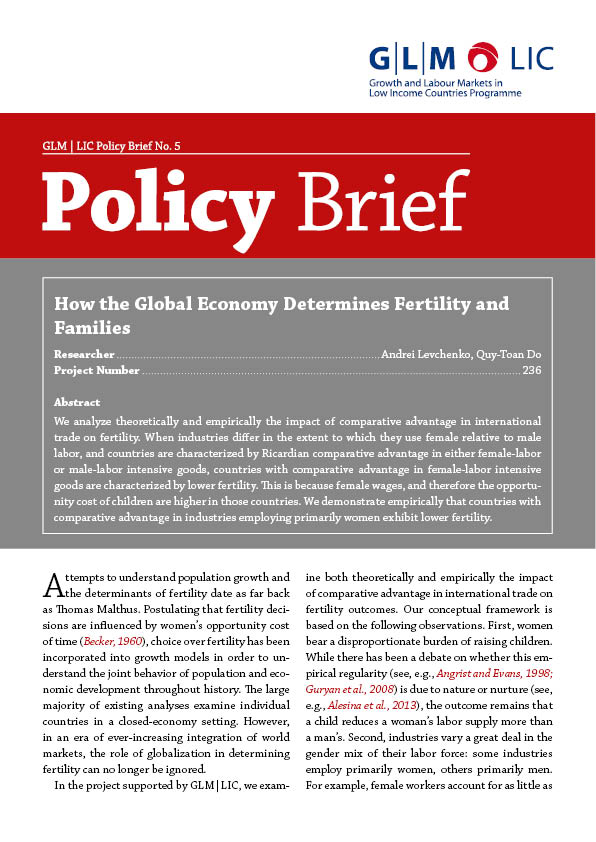We analyze theoretically and empirically the impact of comparative advantage in international trade on fertility. When industries differ in the extent to which they use female relative to male labor, and countries are characterized by Ricardian comparative advantage in either female-labor or male-labor intensive goods, countries with comparative advantage in female-labor intensive goods are characterized by lower fertility. This is because female wages, and therefore the opportunity cost of children are higher in those countries. We demonstrate empirically that countries with comparative advantage in industries employing primarily women exhibit lower fertility.

GLM|LIC Policy Brief No. 5